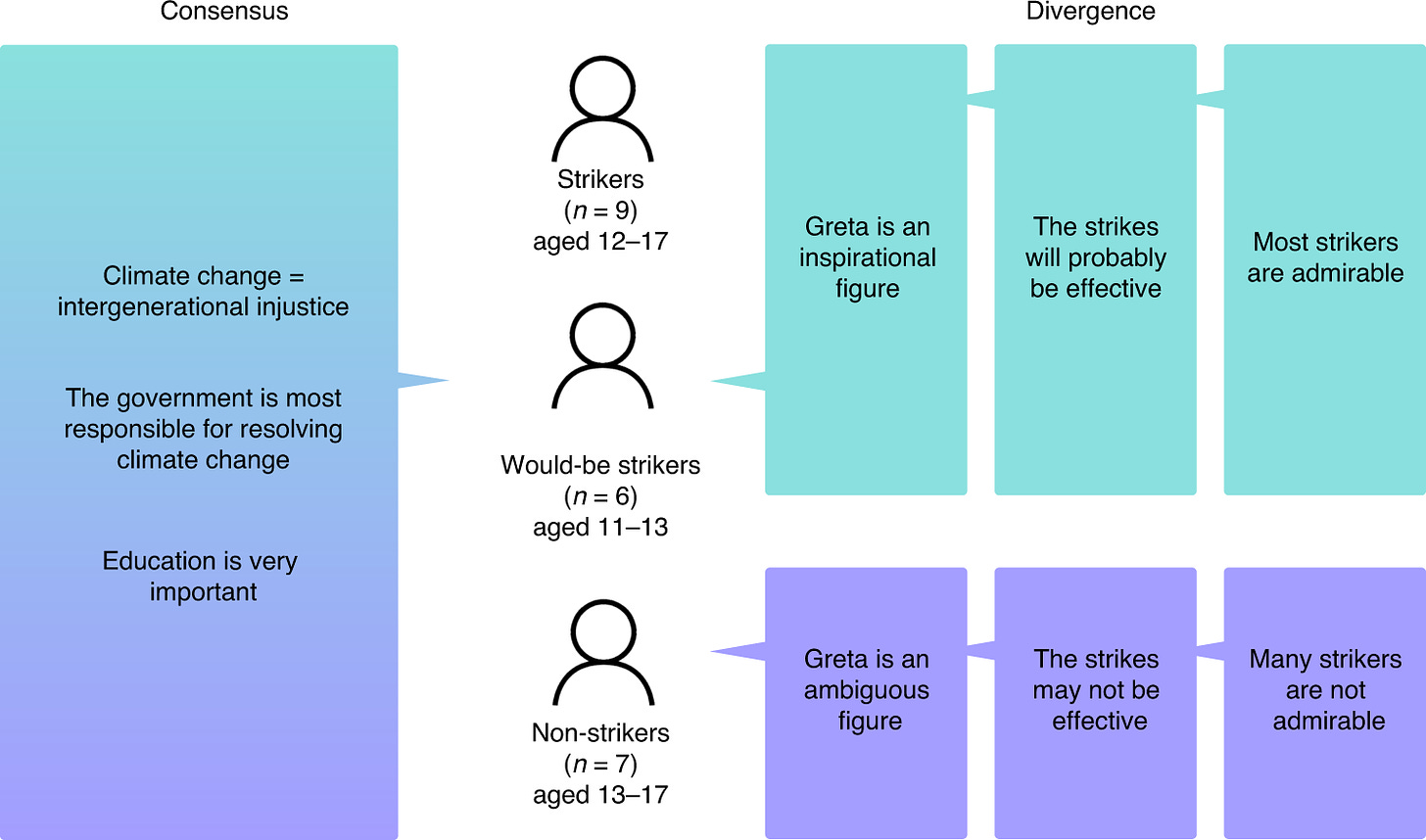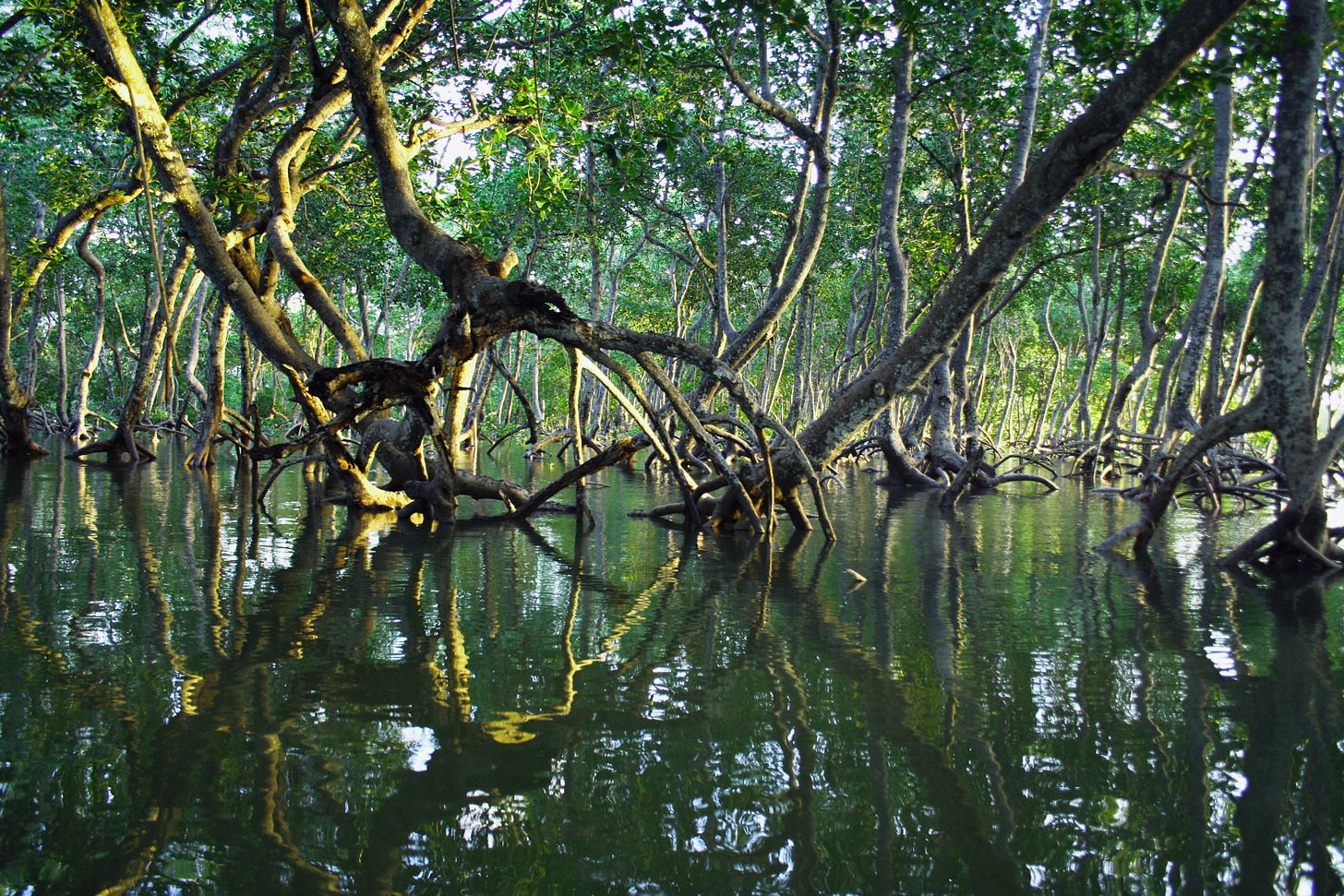Hello everyone - I hope you’re all having a great week! Welcome to the seventh ever ScholarTribe climate briefing, which some people (haters let’s call them) might describe as “four days late”. But hopefully it will be worth it - today’s edition features a great twitter thread on nature-based solutions, some talk about food miles, and a paper about what today’s youth think of climate strikes. So let’s get down to business.
Eco not ego
A new paper in Science summarises the recent research into nature-based solutions of climate change, and identifies future research areas of interest. Prof Nathalie Seddon of the University of Oxford describes nature based solutions as ‘actions that involve people working with nature, as part of nature, to address societal challenges, providing benefits for both human well-being & biodiversity.’ In practice, this means reducing the release of GHGs working lands, and increasing carbon sequestration in oceans and peatlands, for example.
This all sounds fine and dandy - and for the most part it is. Nature-based solutions are effective, well understood and easily scaleable, which means they can be implemented immediately without the huge overhead which comes with engineered solutions. However, they are still maligned in some circles due to occasional heavy-handedness in their implementation, which disproportionately affects local people. According to Prof Seddon this needs to change, and nature based solutions need to form a central role, alongside a rapid phaseout of fossil fuels, in our arsenal against climate change. We need to work with nature, not against it.

If you want to read more about this paper, and NbS in general, I would absolutely recommend the above twitter thread from the author. And here’s a link to the paper itself.
How do you do, fellow kids?
It is becoming increasingly apparent to young people that it will be them who bear the brunt of our changing climate, and in figures such as Greta Thunberg, they see that age is no object to making their voices heard. However it is often difficult to translate this activism into policy changes, and the message can be corrupted along the way. This article in Nature Climate Change by Lee et al. examines how young people in the UK view this rise in youth activism. What is particularly interesting is how it gives perspectives from both strikers and non-strikers. On some issues, such as the idea of holding the government to account for resolving climate change, they largely agree, but other topics are more controversial.

If you want to get down with the kids, check out the paper here.
Going the extra (food) mile
Global food-miles are responsible for 19% of the total emissions of our global food system, according to a new paper in Nature Food, published last week. This value takes into account the entire upstream food supply chain, which includes the transport of fertilisers, machinery and animal feed, and is several times larger than that calculated in previous studies. The authors go on to discuss ways of reducing this number, including eating more locally, more seasonally and with a more plant-centric diet. According to them, none of these factors have a high impact individually, but instead should be combined, especially in the case of affluent countries who can more readily absorb the cost.
That will do for this week - thanks so much for reading! In the future I am keen to do a bit more data analysis in this newsletter, as well as continuing to write about new papers, so if you particularly enjoyed the last edition, stay tuned!



